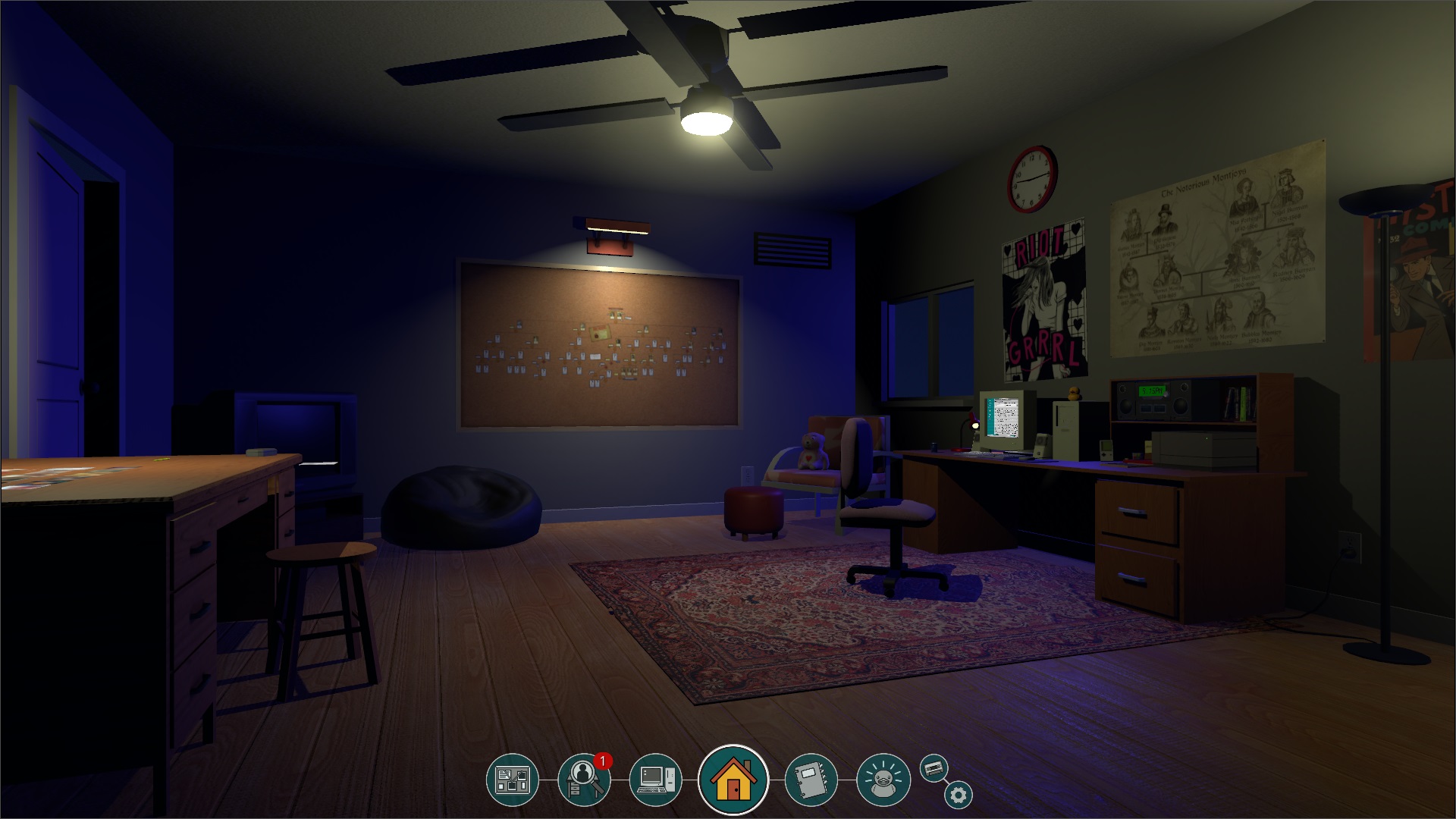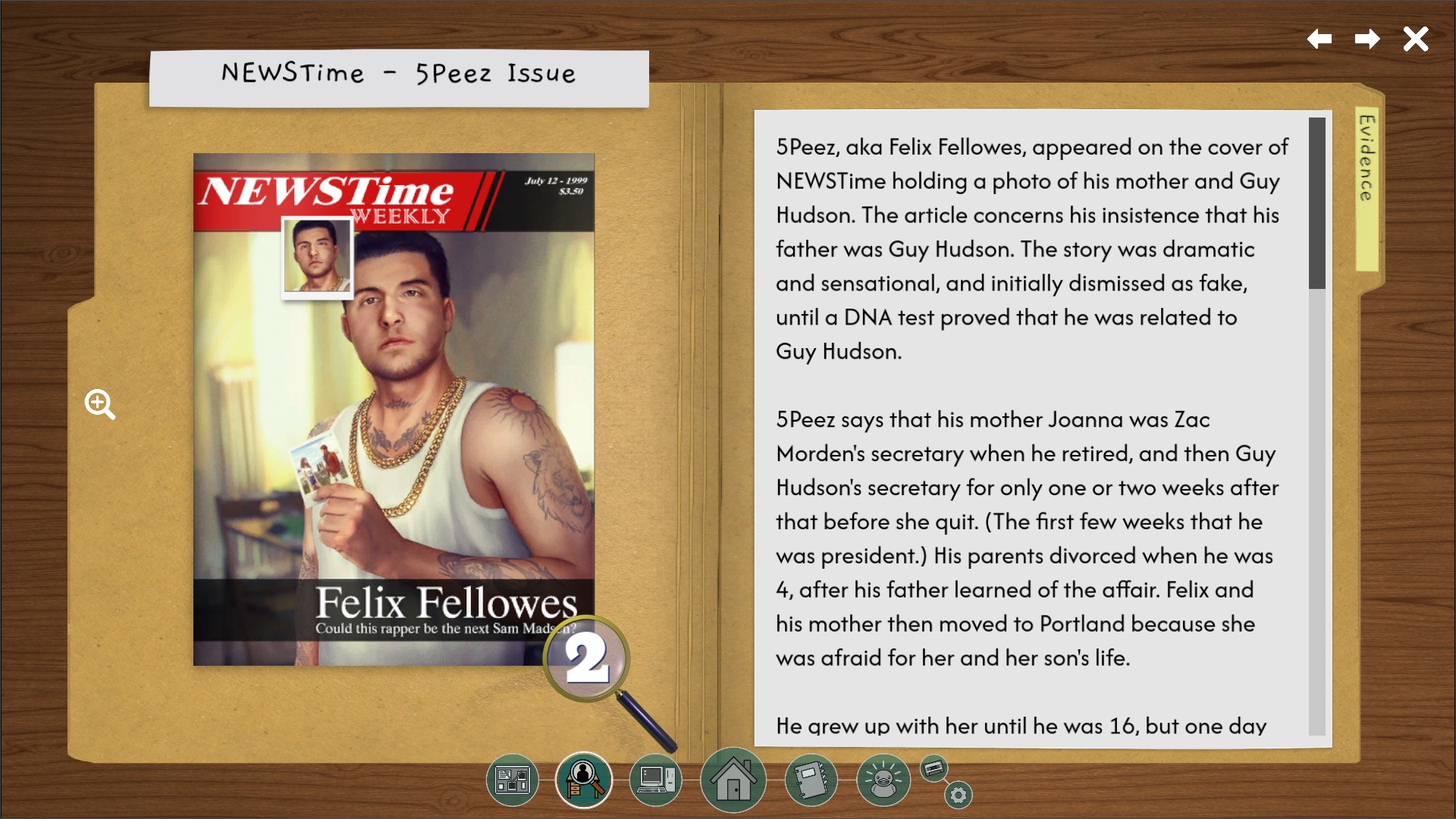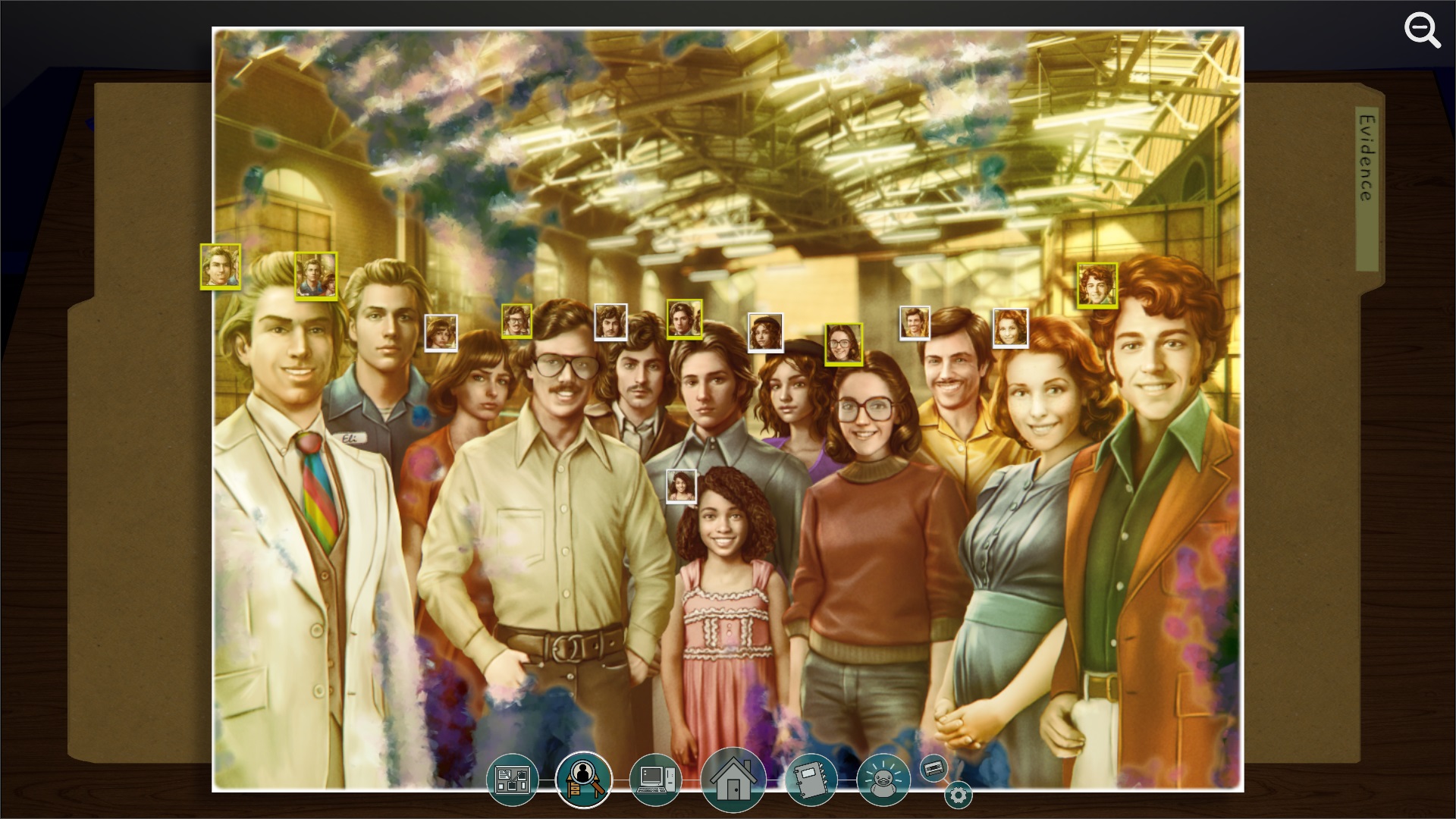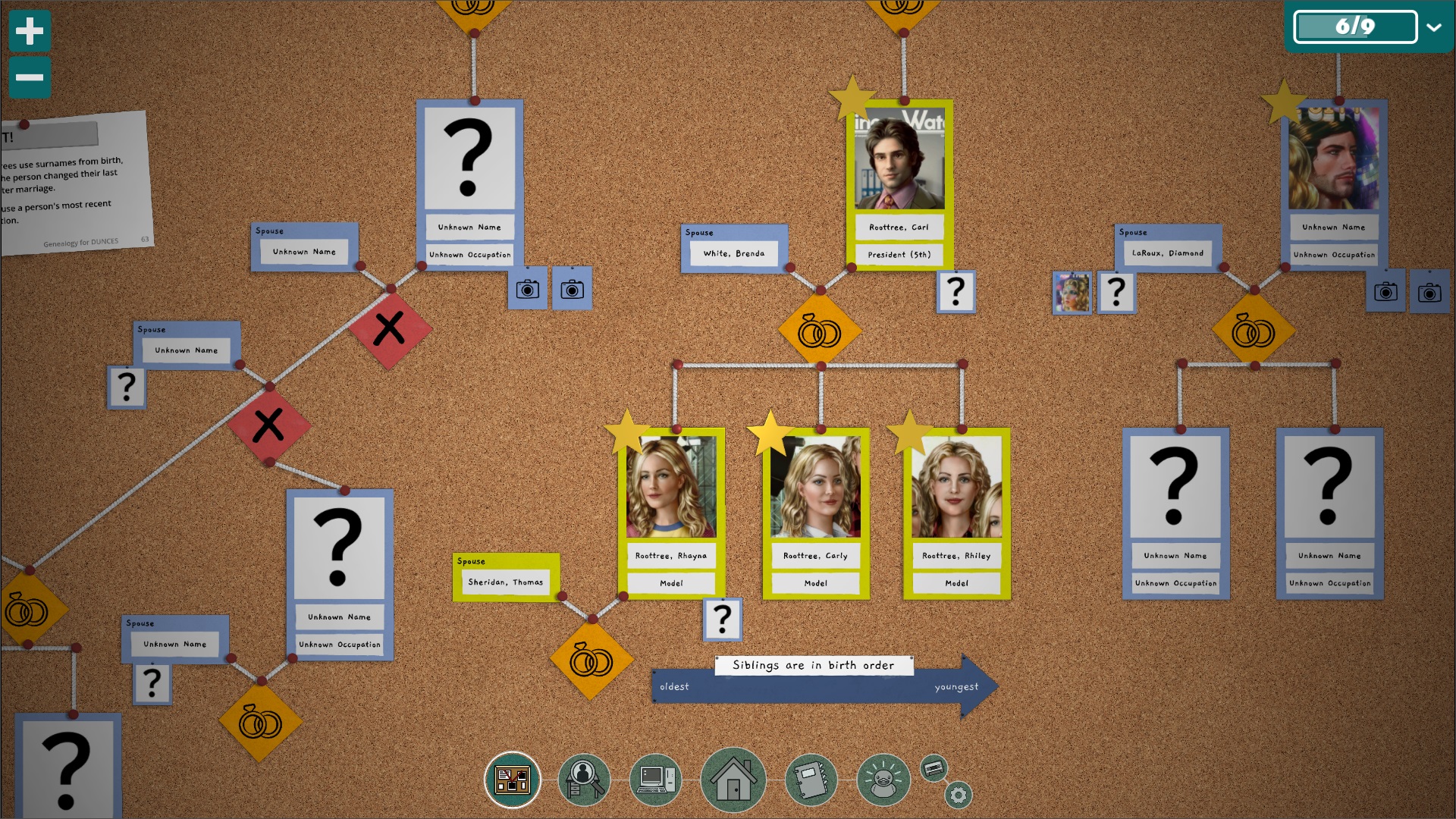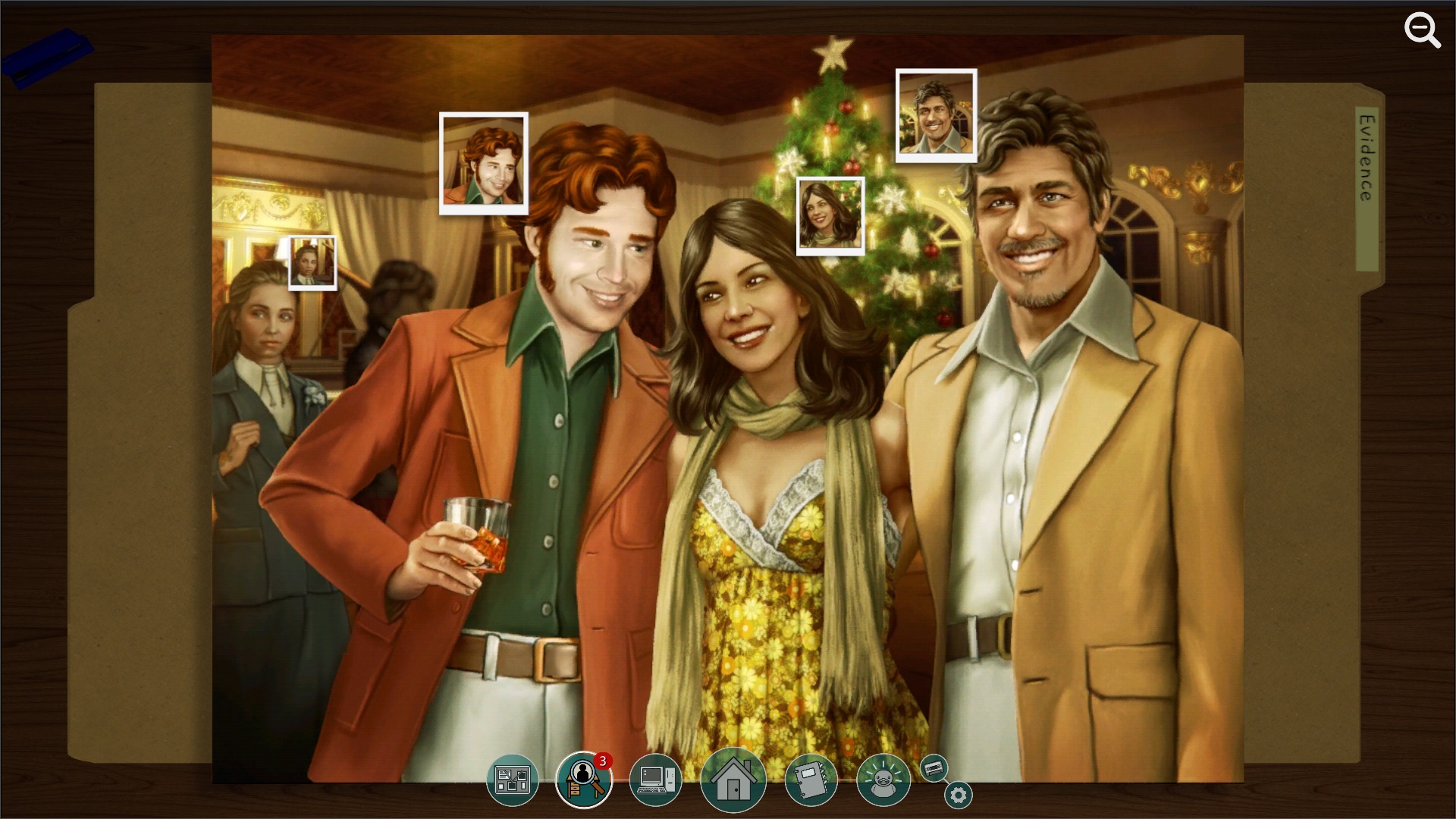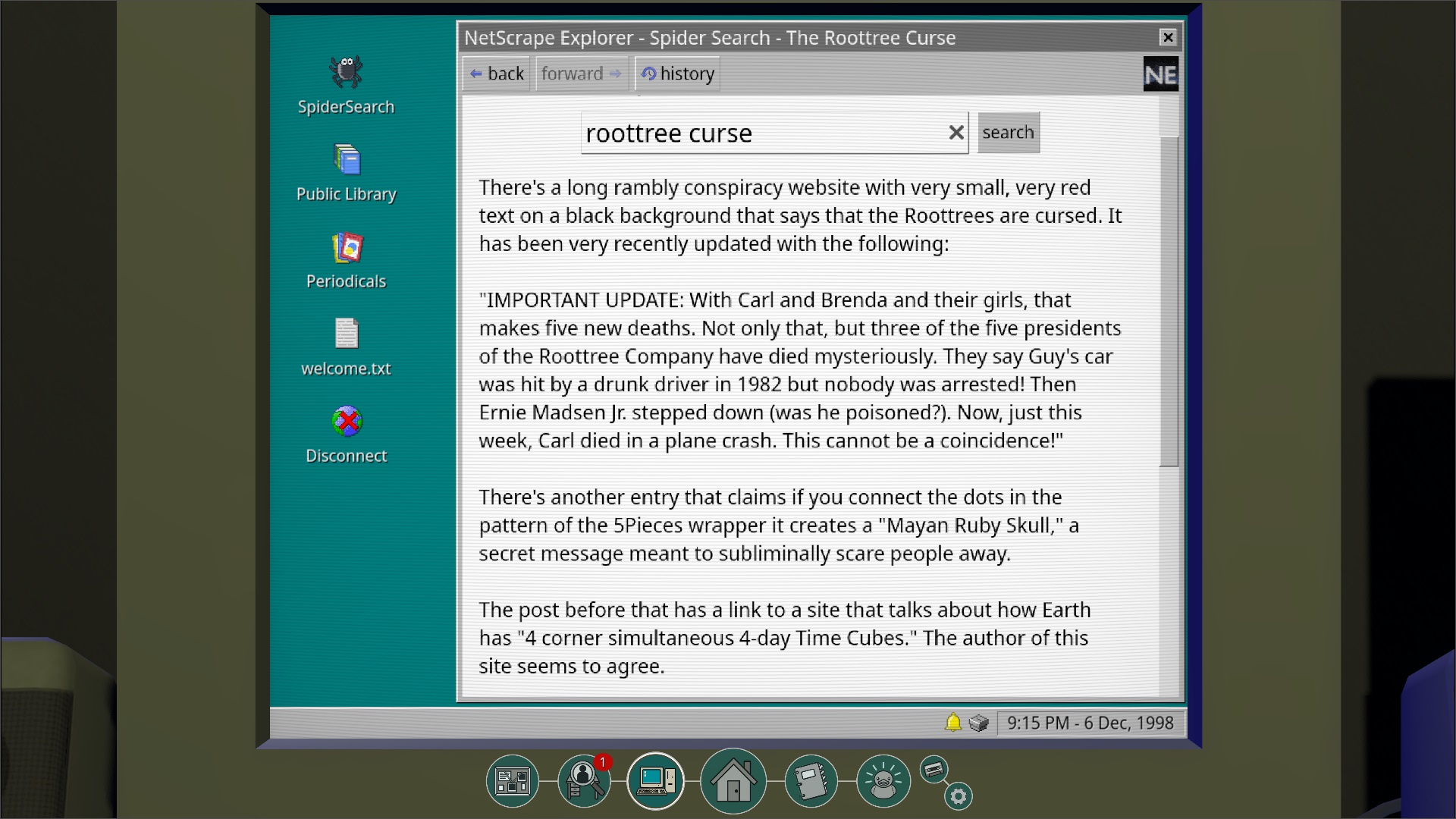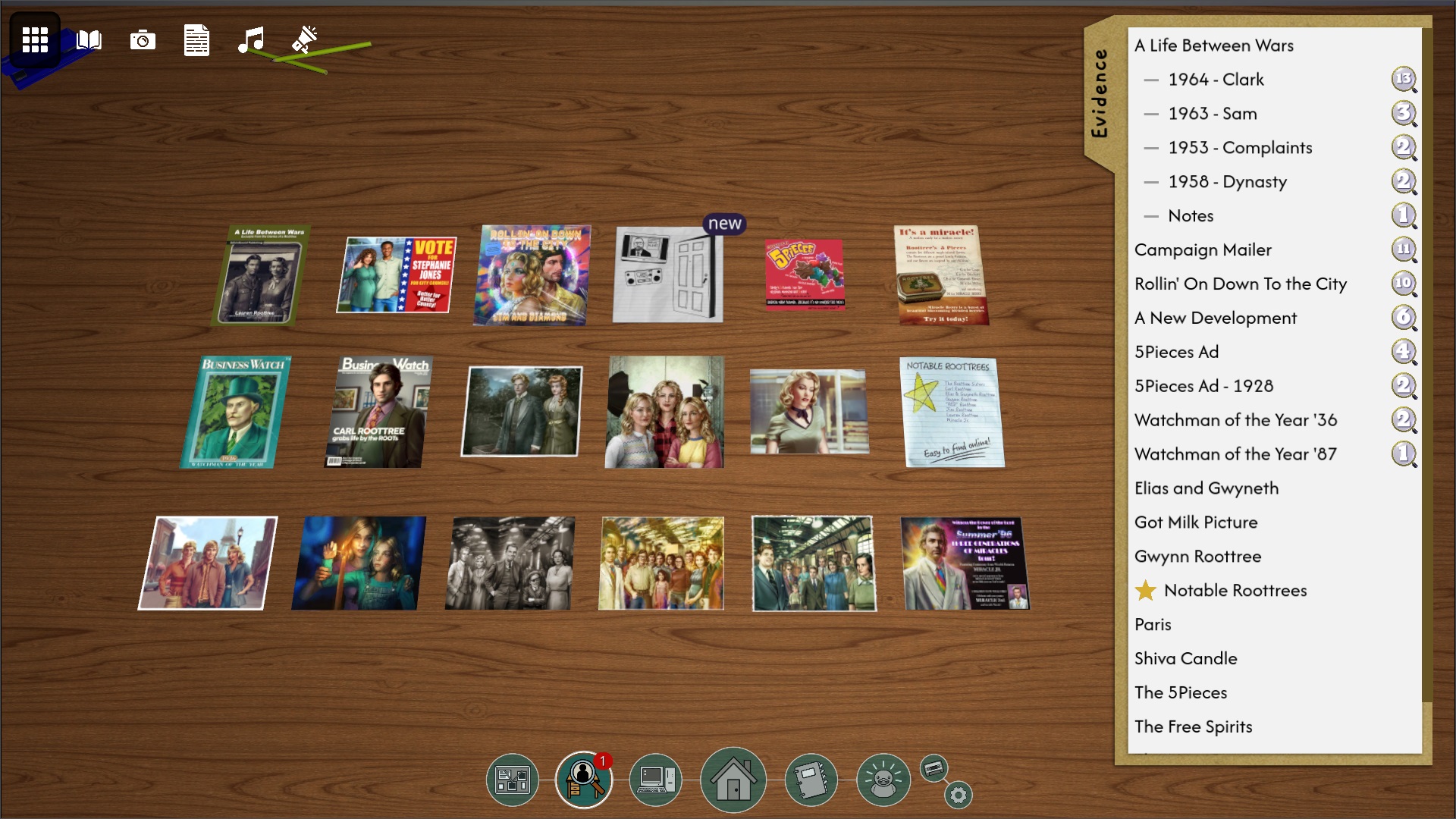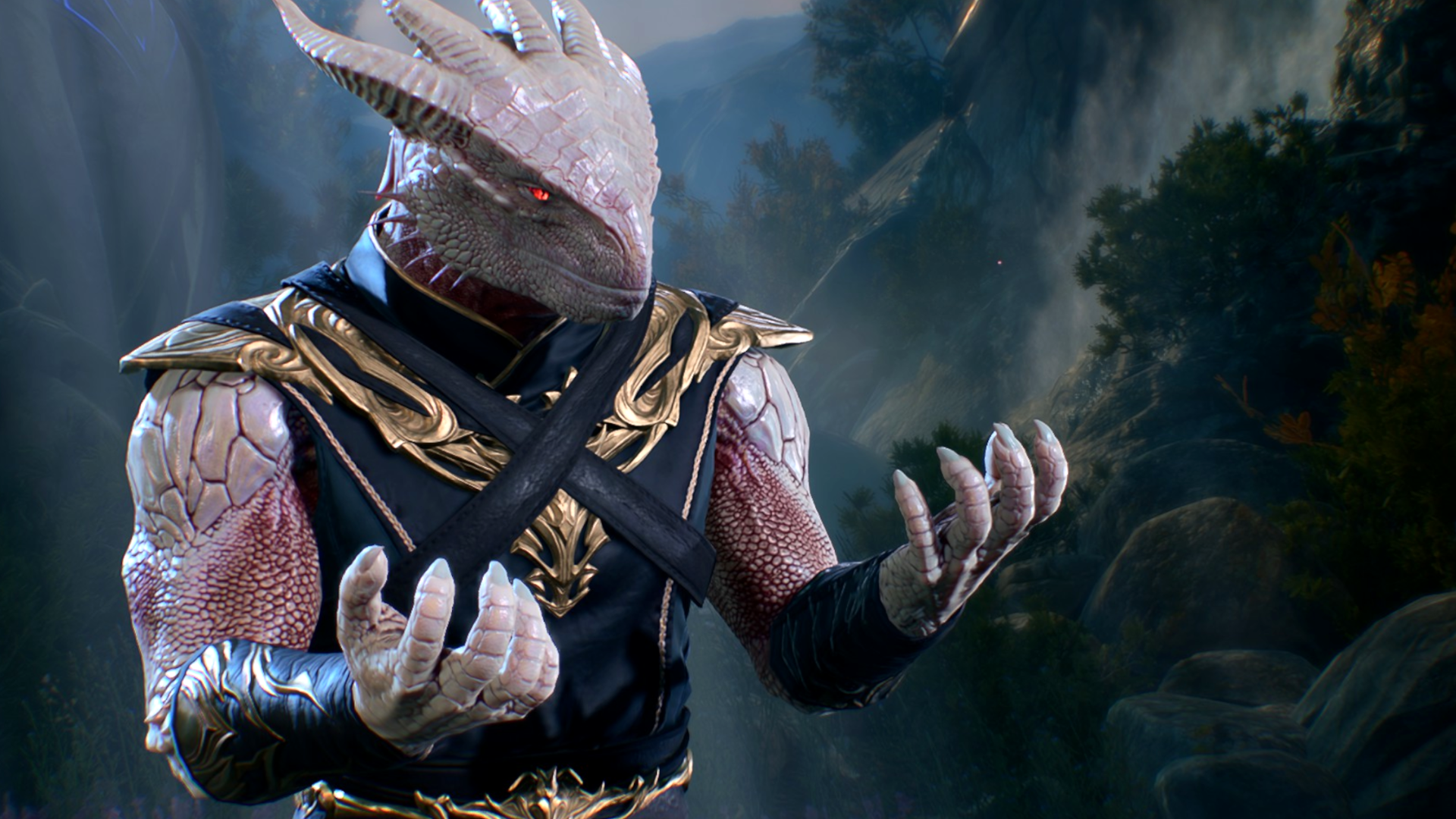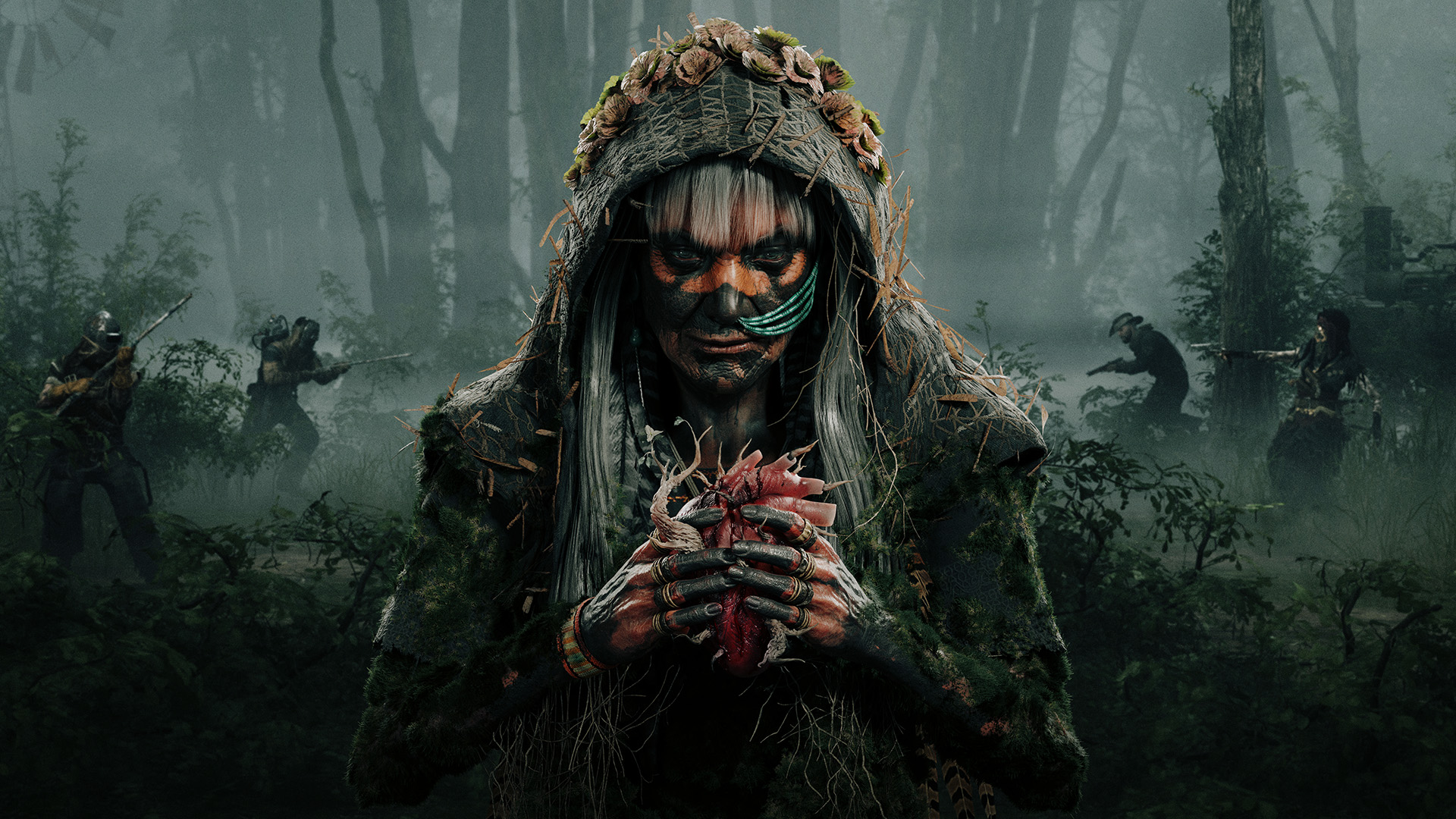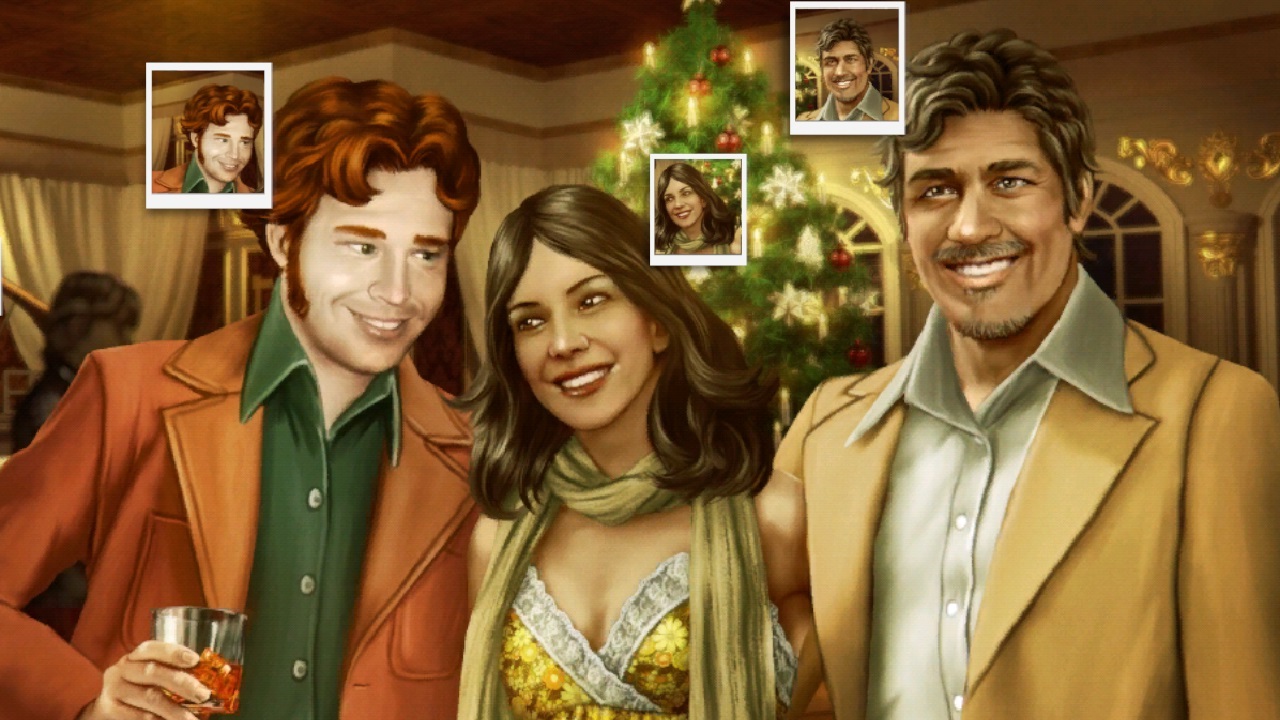
Solving a genealogical mystery, one ancestor at a time.
They say detective work is primarily about sitting in front of a computer, and if so, have I got the desktop for you. Armed with Nut OS 1.1, the Cashew PC offers speedy net surfing and thorough database searching – all without the bloat of a modern Windows machine, or the sluggishness of a genuine late ‘90s PC. It’s the main tool in your arsenal in The Roottrees are Dead, a game about filling in a massive, tangled family tree.
In the wake of a recent tragedy, which has claimed the lives of the current president of the Roottree Candy Company, his wife and their three daughters, you’ve been hired by a mysterious client to chart the Roottree dynasty in incontestable black and white. That means combing through fictional websites, library books and periodicals for the facts required to pin them down on your big, conspiracy-style cork board.
What is it? A game where you fill in a family tree. Much more exciting than it sounds.
Release date: Jan 15, 2025
Expect to pay: $19.99/£16.75
Developer: Robin Ward
Publisher: Evil Trout
Reviewed on: Intel Core i7-10750H, 16GB RAM, GeForce RTX 2060
Steam Deck: Unknown
Multiplayer? No
Link: Steam
Sure it’s easy enough to uncover the names of the three sisters that died in the crash – they are currently plastered all over the internet – plus their professions and a photo each to “lock them in”. But what about their parents? And the parents of their parents’ parents? You have 90 years of this stuff to dig up, so get searching.
Every time you find a clue—if you even noticed it, as they can be cleverly buried—you have a number of avenues to turn to (on your swivel chair). There’s the evidence on your evidence desk (maybe I should get an evidence desk): relevant photos and documents you’ll return to, time and again, to cross-reference new information. But your main port of call is the World Wide Web, the Information Superhighway, which—just as in the real 1998—has exactly three sites of note.
Fictional search engine SpiderSearch is useful for looking up the more famous Roottrees, or notable incidents involving them, while any books you have uncovered may be available from a central library database. Periodicals are also handy for digging up the titbits you need to complete an entry. I lost track of the number of times I had used the married rather than the maiden names of the Roottree spouses.
Bloodlines
Technically you’re only required to fill in direct descendants on the family tree (company founder Elias Roottree was a bit obsessed with the bloodline), but when every name or profession or discovered photograph feels like sifted gold, you’re going to slap them all on the cork board anyway.
After every few successful entries, the game fades to black to pat you on the back, confirming your work by locking those entries in place. The game is essentially one giant puzzle—pretty daunting when you zoom out to a sea of question marks and no idea where to start—so it’s best to take notes, whether in real-life or with the in-game notebook.
Actually, speaking of that notebook, it’s one of the niftiest notebooks ever made. Just one element of an interface that works its socks off to keep you immersed in the detecting flow state. Found a clue on a website, in a book, or in one of your evidence folders? Simply highlight it with the mouse for options to search for it on the internet, or to add it to your notebook, no typing required. The Roottrees are Dead never feels fiddly, repetitive or time-consuming, and in a game about transferring information between menus repeatedly, that’s no small feat.
The AI-generated artwork of the original is thankfully gone, replaced by beautifully hand-drawn photos, magazine covers and promotional flyers.
I said much the same thing back when I reviewed the earlier, free version of The Roottrees are Dead, which is largely similar but neatly eclipsed by this paid remake. The AI-generated artwork of the original is thankfully gone, replaced by beautifully hand-drawn photos, magazine covers and promotional flyers, while the action has spread out from just your desktop to your entire living room. The corners of the room are dominated by your PC, your cork board, the evidence desk and the front door, which is where your client will occasionally pop up to progress the overall story.
With such a large cast of characters, and often cursory details about their lives, I felt like I knew a lot and very little about the Roottrees after playing the game. It was fascinating to unravel their history, their secrets, to follow potential clues down rabbit holes and feel like an actual detective, but very rarely did I discover anything to make me care about the characters.
The Roottrees are Still Dead
That’s just one element bettered in the expansion, which is included as part of this remake, and accessible after you complete the main game. Roottreemania deals with the fallout of the explosive ending of The Roottrees are Dead, enriching characters from the previous game while introducing additional branches to the family tree. Here, you’re following the trails of various infidelities—an area not really touched on in the previous game—and the illegitimate offspring that now have a claim to the Roottree fortune.
2025 games: Upcoming releases
Best PC games: All-time favorites
Free PC games: Freebie fest
Best FPS games: Finest gunplay
Best RPGs: Grand adventures
Best co-op games: Better together
Partway into this tougher investigation, I realised I’d been touched by some of the stuff I had uncovered. Little details had fully brought many of its characters to life. The game generally summarises websites and documents, rather than delivering them to you wholesale, and more interesting and affecting details about their lives have been picked out here.
This second part of the Roottree saga is also a better detective game, with a greater amount of useless information to sift through (making the genuine clues, when you find them, all the more rewarding), and a more challenging method of inputting information. In the first part, you select first and last names from a reassuringly dwindling list, but here the pool of available names is considerably larger, and it doesn’t deplete, meaning you’re less able to rely on guesswork to fill in the blanks.
All in all, you could hardly ask for a better follow-up to The Roottrees are Dead, which itself is a lavish revamp of the free original. This is a game for the quiet hours at your desk, your lamp low and the coffee steaming away, and one of the best games about unglamorous detective work.
